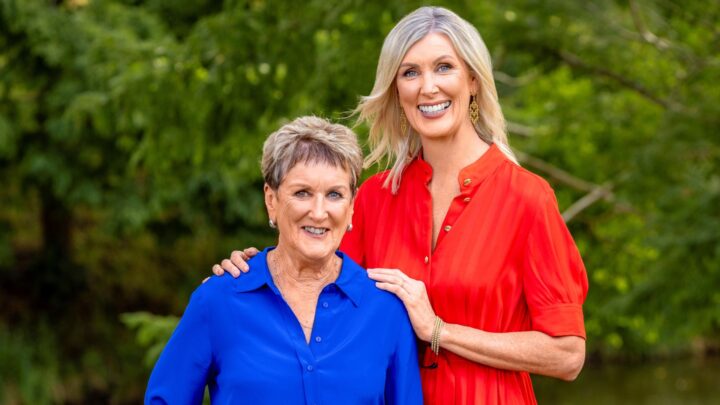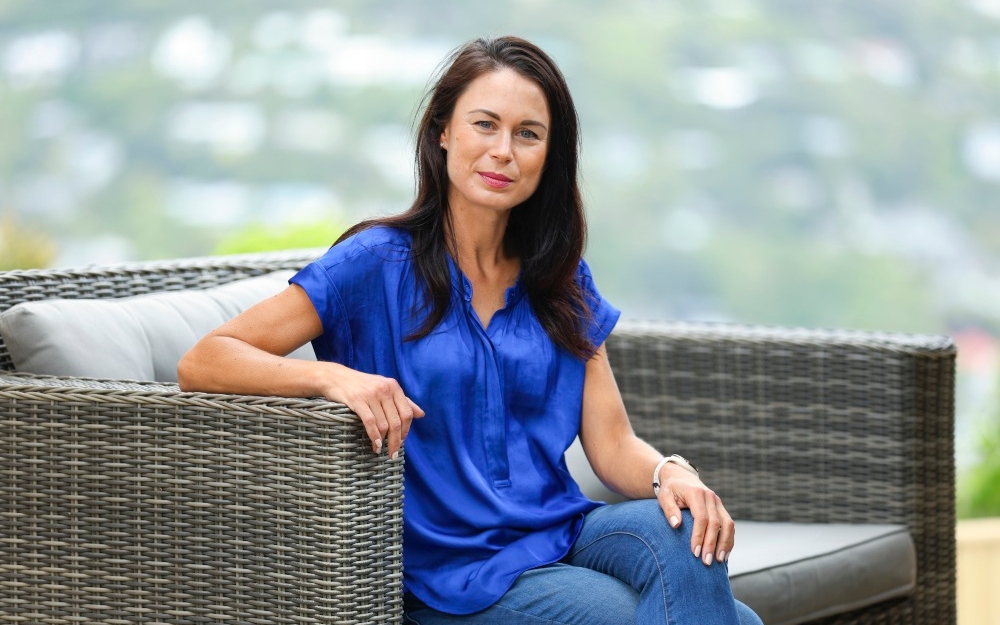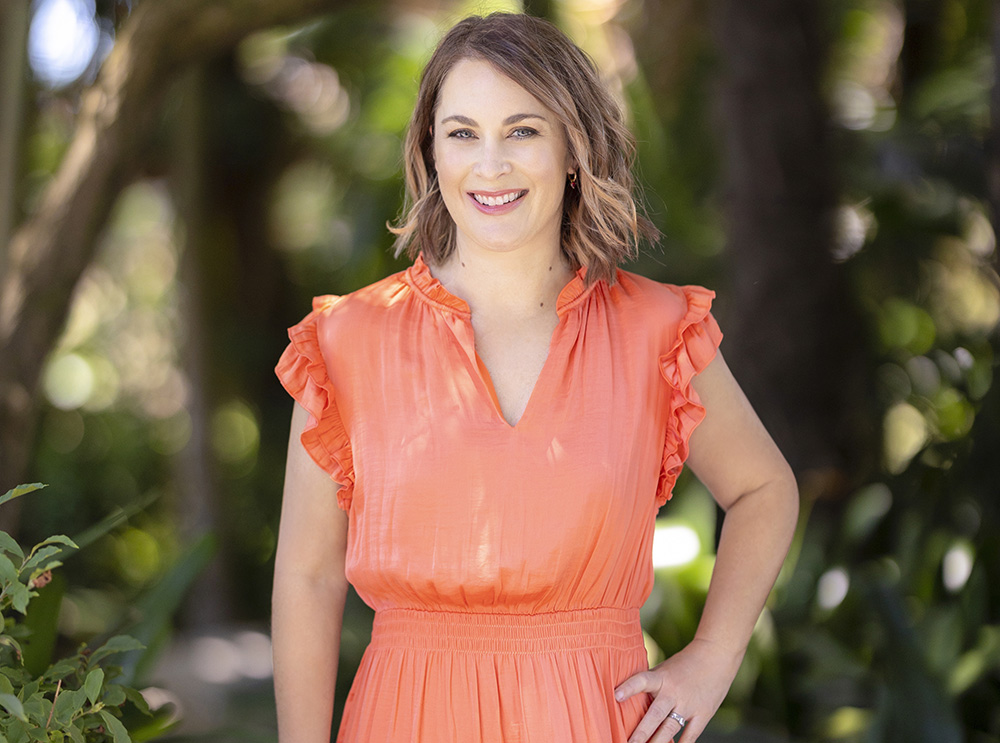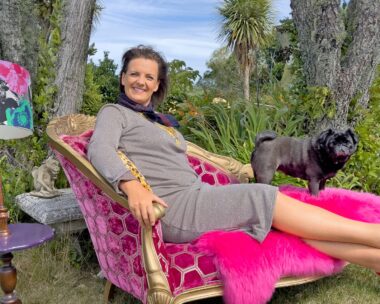Last November 16, Rachel Smalley was on top of the world. The former broadcaster had just taken a call from TVNZ Sunday journalist Miriama Kamo to tell her she’d been nominated for the Kiwibank New Zealander of the Year 2024 awards. She couldn’t wait to tell her mum Shirley Mackie.
“I was so excited – it was a huge surprise,” says Rachel, 52, who after some time off and a few career changes, was nominated for her work with The Medicine Gap. An initiative advocating for better access to modern medicine. “Miri told me I had to keep the news quiet, but I’d been given the okay to tell Mum. I celebrated for about 90 seconds, got quite emotional about it – and then I called Mum with the news.
“But her voice just broke. I thought maybe she was getting emotional about my news, but she told me she had been diagnosed with breast cancer that very morning. In an instant, everything changed.”
Two weeks earlier, Shirley, 76, had booked a private mammogram, after a previous conversation with Rachel about getting one.

“I thought once you reached 70, you didn’t need mammograms any more,” admits Shirley, who is based in Christchurch. In New Zealand, mammograms are free every two years through BreastScreen Aotearoa for women aged 45 to 69. “If someone had asked me when my last one was, I’d have said probably a couple of years ago. I was so surprised when they told me I hadn’t had a mammogram for over six years.
“Having something wrong with me wasn’t something I even considered. I’ve always been a ‘go, go, go’ sort of person and I’m very healthy. I haven’t even had so much as a headache.”
When Shirley made the appointment, the nurse asked if she had any problems.
“I didn’t,” she says. “I’m very aware of my body and I check my breasts.”
But about a week later, before the mammogram, she looked in the mirror. “I realised I had a lump about the size of half a marshmallow, high on the side of my right breast. It was soft to the touch, but when I put pressure on it, it hurt.”
Shirley instantly realised her lump was eerily like the one her mother Myrtle had when she had breast cancer. Myrtle succumbed to the disease at 86.

“Deep down, I knew it was cancer, but it seemed kinder just to call it my lump,” Shirley smiles. She opted not to tell Rachel or her older brother Jason, 55, just yet. “I didn’t see any point in worrying them until we knew what it was.”
But when Shirley was recalled for an ultrasound following the mammogram and her doctor confirmed she had cancer, she had to let her daughter know.
“When Rachel rang to tell me about the New Zealander of the Year nomination, I kind of bombshelled her with my news,” recalls Shirley. “For me, that’s the hard part. I’m not too bad with it when I’m by myself, but I get very upset when I have to tell people because you don’t know what their reaction is going to be.”
While Rachel rang Jason with the news, Shirley was comforted by her partner of five years, Roger Stephens, 69, who recently completed treatment for prostate cancer. “Finding out you have cancer is a huge shock. But, Roger kept reminding me I’m really healthy and I’d be fine.”
With Christmas looming, immediate surgery wasn’t an option, so Shirley was scheduled in for a lumpectomy – where the cancerous part of the breast and some lymph nodes are removed – on January 23.

Rachel booked a flight to be with her mum in Christchurch when she got her lumpectomy results the following week. Meanwhile, she also had a mammogram… then 24 hours before she was due to fly from Auckland, BreastScreen Aotearoa phoned to say she too had been recalled after her own mammogram revealed an anomaly – in exactly the same spot as Shirley’s and Myrtle’s.
“I have yearly mammograms – the public one every two years and privately on the alternate years, as I have dense breasts, which means sometimes issues can get missed,” explains Rachel. She was told that of every 100 mammograms, an average of five women are recalled. Of those five, only one will have cancer.
“Being one of the five is very confronting,” admits Rachel, who told her fiancé, stockbroker Dave Pretorius, but opted not to tell her son Finn, 15, or her mum, until she knew the results. “Telling Dave was
a pretty hard phone call, but I couldn’t tell Mum – she was on enough of a journey herself,” she says tearfully.
Awaiting her own results, Rachel stayed in Christchurch to help Shirley work through her diagnosis and treatment options.
“Because my work involves communicating with cancer patients, I’ve learned there’s a lot of information you don’t take in,” she tells. “As soon as the surgeon says, ‘It’s cancer’, you don’t really hear anything else.”

Shirley adds, “Rachel’s been so good – she’s done so much research and she’s been a huge support. I think I dealt with it okay in general, but it’s still frightening, and every now and again it would catch me off-guard. Roger would ask if I was all right and I’d just explain I was having ‘big feelings’. I mean, we’re all going to die at some point – I just don’t want it to be yet.”
Shirley’s results revealed her tumour was grade three – not grade two as originally thought. The disease was present in three of the lymph nodes. This month she’ll begin a five-day course of radiation treatment – but no chemotherapy, something Rachel wants to question.
“I don’t want to get in the way of Mum’s treatment – she must own that herself – but I’d like a second opinion to find out if the decision not to give her chemo is due to her age,” she says. “Mum is super-fit, doesn’t smoke or drink and doesn’t take any medication. She’s healthier than many women 10 years younger than her. I just want to understand why, if cancer was present in the lymph nodes, that was the recommendation.”
Shirley still has a long way to go. As well as the radiation, for the next five years, she’ll take a hormone inhibitor, which can slow or stop breast cancer cells from growing and spreading. But there’s no stopping her.
“Mum’s so tough,” smiles Rachel. “She’s a keen gardener and until recently she’s been using an old-school manual lawnmower you push back and forth. The day after she came out of surgery, she said, ‘Well, the lawns are still going to need mowing!’ She realised pushing and pulling might put some pressure on her breast, so she bought an electric mower. That’s how important her lawn is!”

And Shirley also has another hobby. “She took up cycling aged 74!” Rachel laughs. “She met Roger, who’s a keen cyclist, during lockdown. Now she has an e-bike and cycles about 150km every week. I feel like I’m dealing with a teenager – I never know where she is!”
It’s a lovely light moment in what has been a truly harrowing time for mother and daughter. Thankfully, Rachel’s results came back clear – the lump was a benign calcification. But the lesson for her was stark. “When Mum got it, then I was recalled, it became very real,” she says through tears.
“After three years reporting on cancer issues for The Medicine Gap, I realised I’d spent so much time giving advice to others, I’d bypassed focusing on getting my own mum to have a mammogram,” she admits. “That was really challenging. I work in health and I’m a communicator, but I wasn’t an advocate for my own mum.
“It’s been a massive lesson for me. So with Mother’s Day coming up, if you don’t know what to get as a present, why don’t you pop a little note into a card, saying you’ll pay for her to have a mammogram this year? You could literally be giving your mum the gift of life.”
For more info about breast screening, visit timetoscreen.nz/breast-screening
 Photos: Babiche Martens
Photos: Babiche Martens


